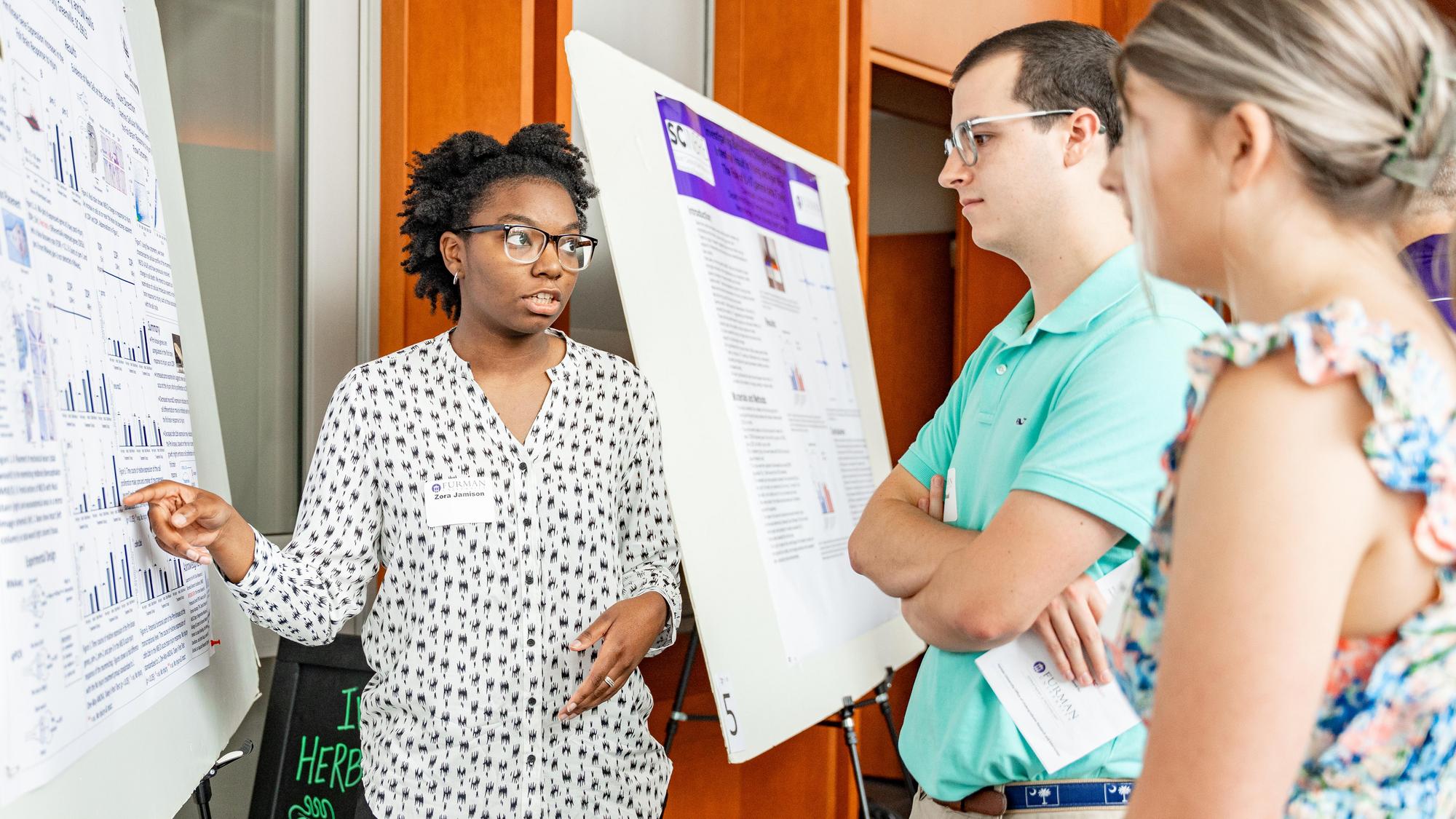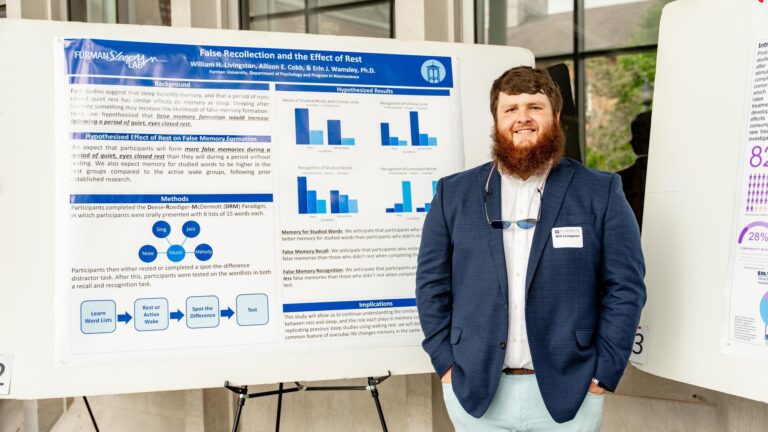Conference shares findings from psychology and neuroscience labs

Students presented their summer research during the 16th annual Psychology and Neuroscience Summer Research Conference hosted by Furman’s Department of Psychology on July 19.
More than a dozen research posters, covering subjects such as cognitive dissonance, self-transcendence, perceptions of economic inequalities and pro-environmental decision-making, were displayed during two morning sessions in Plyler Hall’s Kohrt Commons. Afterward, several students discussed their projects in an afternoon session in the Dining Hall.
The researchers, supported by The Furman Advantage, an educational framework that provides every student an individualized educational pathway and opportunities for high-impact learning experiences, showed a high level of sophistication, said Erin Hahn, professor and chair of psychology, welcoming attendees to the afternoon session.
“Here at Furman, we don’t just have students coding data and not contributing to projects,” she said. “They are meaningfully involved in shaping the research and moving it forward.”
Taste, memory, media and PTSD

Will Livingston ’24 presented his research poster during a session of Furman’s annual Psychology and Neuroscience Summer Research Conference July 19.
Neuroscience major Dallas Shuman ’25 has spent two summers in the Furman Taste Lab with Veronica Flores, an assistant professor of psychology. Shuman’s research, building on prior work done by Flores on taste aversion and learning, explored how long-term memory might be affected by taste experiences.
“If you see a behavior, we know as psychologists and neuroscientists that something’s happening in the brain. So, we want to see what’s going on,” said Shuman. Her poster, “The Impact of Innocuous Taste Experience on Long-Term Taste Learning and Memory Persistence,” was honored at a statewide science symposium earlier this year.
Shuman and fellow neuroscience major Kadence Alexander ’26, conditioned lab rats to develop an aversion to sucrose and tested them at different times to see how strong an aversion remained. The researchers also plan to test the rodents’ brains for markers of neuroplasticity, the ability of neural networks to change and adapt.
Further research is needed, but Shuman said what they’re seeing so far is “very promising.”
Emma Page ’25, a psychology and mathematics double major, worked in the Memory and Cognition Lab during the summer term, researching how the media might influence how people envision their own futures and the future of the country. She surveyed 275 Americans through an online research platform and is comparing their answers to headlines published on major news outlets during the same time.
Christopher Petty ’24, a neuroscience major, discussed his work in the lab investigating the involvement of a certain dopamine receptor in the development and expression of post-traumatic stress disorder. And in a prerecorded presentation, Casey Norei Funderburk ’24, a theatre arts and psychology double major, and psychology major Emma Ingalls ’25 explained the project they undertook to create a social media intervention to counteract negative body image.
The faculty honored Petty and Shuman for their outstanding presentations by giving them both the Janet Hysinger Cover Award.
‘It’s helping me grow confidence’
Will Livingston ’24, a neuroscience and religion double major, spent Summer 2023 in the Furman Sleep Lab in Johns Hall under the guidance of Erin Wamsley, an associate professor of psychology, picking up on previous research indicating that waking rest – a period of “daydreaming or mind-wandering” devoid of stimulus, Livingston explained – might aid in memory consolidation.
“Evolution would not have made us spend 50 percent of our waking hours in this rest condition if it were not worth it,” Livingston said.
Research is still in progress, but Livingston hypothesizes that waking rest may have the same effect on false memories as it does on true ones. The high-level work he did in designing and implementing the research project has already benefited him personally, he said.
“Seeing all of it coming together has helped cement the idea that I wanted to do this for the rest of my life,” said Livingston, who hopes to continue sleep research in a Ph.D. program after graduation. “It’s really helping me grow toward having the confidence to be able to do that.”